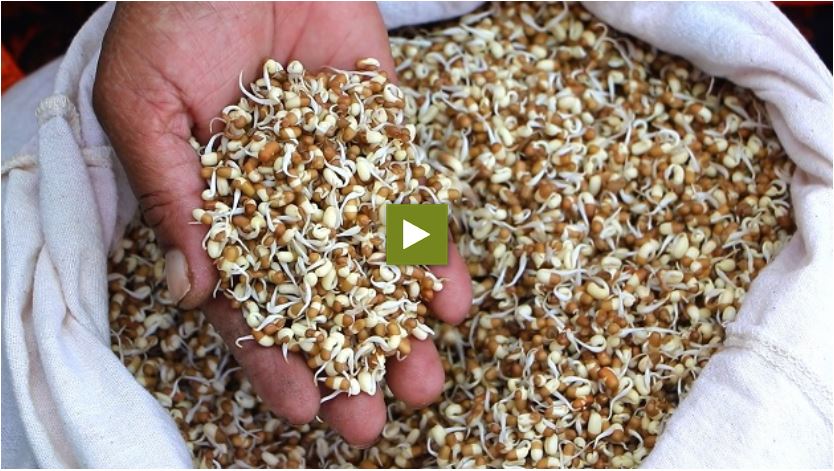»Sprouting grains for livestock feed (summary)«
Livestock are important in the economy of farmers. Besides milk, meat and eggs, livestock provide farmers with an income.
When animal feed is not properly balanced, livestock becomes less productive and their health can be negatively affected. In the rainy season, our cattle graze on green fodder, and we also give them some dry fodder. However, in the dry season, green fodder is hard to obtain, and we only give dry fodder. Due to this, our cattle become weak and give less milk, so we get less income. When cattle lack nutritious feed, they lose weight, give less milk, and their milk contains less fat. Within a couple of weeks, their hair loses colour, and they get skin diseases.
Balanced Feeds
Poorly fed cows have fewer calves and easily get diseases. A balanced feed should provide the right amount of protein, energy, minerals, and vitamins from dry fodder.
Balanced feed also includes green fodder, concentrates, salt, and other minerals, so the animals stay healthy.
Sprouted Seeds Benefits
Sprouting makes grains easier to digest. In sprouted grains, the minerals, vitamins, and proteins are all available to the animal. You can produce sprouts all year on any day that you need them.
Use any available grain such as wheat, barley, oats, or maize. Use good grains that have been threshed by hand. Some farmers test the germination of the grains before buying them in the market.
Making Sprouted Grains
To make sprouts put the grains in a tub and add half a handful of salt and clean lukewarm water. Soak the seeds for about twelve hours. Now drain the water and put them in a clean bag. After 24 hrs, your grains have sprouted and are ready to feed to your animals.
By using sprouted grains, you can use less money on feeds, and your cows will give more milk and better milk.



















